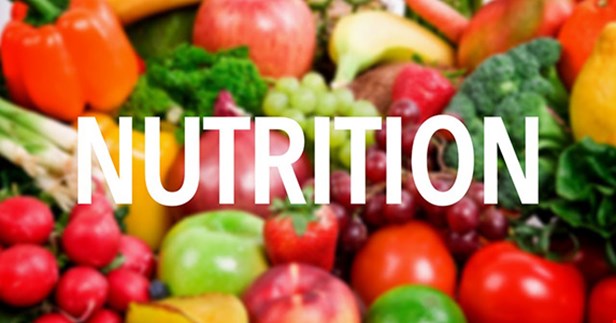EPF paper on clinical nutrition guidelines and summaries for patients

EPF together with our member organisation the Patients Network for Medical Research and Health (EGAN) set up an EU patient task force on information to patients on nutrition. This comes in line with EPF’s position statement on information to patients on food and nutrition published in February 2018, based on the outcomes of last year’s Patient Group Conference on Nutrition.
The main objective of this task force was to outline existing clinical nutrition guidelines, analyse the extent to which patients are involved in the guideline development process, showcase some examples of guidance developed by patients for patients, and enhance the development of comprehensive summaries of scientific clinical nutrition guidelines.
Thanks to the contributions and valuable feedback received from EPF members as well as task force members and scientific and professional organisations, earlier this month, EPF published a paper on clinical nutrition guidelines and summaries for patients.
What is EPF’s new paper on Clinical Nutrition Guidelines and Patient Summaries about and who is it intended for?
Information and awareness are essential to improving public he alth and patients’ quality of life and it is important that research, guidelines, recommendations and good practices concerning nutrition reach patients. In this respect, EPF recommends that research and guidelines should be explained and disseminated in a lay-friendly way, and their communication and dissemination should be improved. Patient organisations, healthcare professionals, governments, and the wider education system all have their specific roles to play in this area.
alth and patients’ quality of life and it is important that research, guidelines, recommendations and good practices concerning nutrition reach patients. In this respect, EPF recommends that research and guidelines should be explained and disseminated in a lay-friendly way, and their communication and dissemination should be improved. Patient organisations, healthcare professionals, governments, and the wider education system all have their specific roles to play in this area.
This paper is about the development of clinical nutrition guidelines and the importance of summaries of these for patients as well as the need for improved patient involvement in the development processes, the importance of health literacy and informed decision-making concerning food and nutrition.
The document is primarily intended for patient and carer organisations and also scientific societies and organisations developing clinical nutrition guidelines. Healthcare professionals who are called upon to give advice may also find this paper useful.
It highlights summaries of recognised clinical nutrition guidelines and guidance developed by patient groups and organisations for patients. Patient organisations have, to date, developed several initiatives providing guidance on nutrition and different chronic conditions in a multitude of different formats. The initiatives listed and explained in the paper are intended for patients and serve as a guide and inspiration to scientific societies and guideline developers. The examples listed are far from exhaustive. Developing summaries of recognised nutrition guidelines for patients is a complex exercise. Nutrition relates to different chronic conditions in very different ways. Furthermore, the way in which nutrition relates to different subsets of these diseases and different patients also varies greatly, adding to the complexity of such guidance.
The paper ends with recommendations for improving existing guideline development processes, improving patient involvement and enhancing the development of patient summaries. Click here for more details.
Optimal Nutritional Care for All 2018 Conference – ‘Fair access and shared decision making: key in nutritional care’
This paper was launched earlier this month on the occasion of the 2018 Optimal Nutritional Care for All (ONCA) Conference.
‘ Optimal Nutritional Care for All’ is a European-wide action programme carried out by 18 national alliances to improve nutritional risk screening and nutritional care across the region. The national alliances bring together health care professionals, patients’ groups, Ministries of Health and other key stakeholders in the sector. The ONCA campaign is driven by The European Nutrition for Health Alliance (ENHA).
Optimal Nutritional Care for All’ is a European-wide action programme carried out by 18 national alliances to improve nutritional risk screening and nutritional care across the region. The national alliances bring together health care professionals, patients’ groups, Ministries of Health and other key stakeholders in the sector. The ONCA campaign is driven by The European Nutrition for Health Alliance (ENHA).
The paper was presented during the opening ceremony of the conference and was discussed further during a breakout session on the topic of patient summaries of clinical nutrition guidelines.
EPF is believes that patient involvement in guideline development will render more patient-centered health care provision, more democratic health care policy-making and quality improvement of care and policy.
What next?
The European Society for Clinical Nutrition and Metabolism (ESPEN) has recently started to work on a two-year project which is dedicated to the improved dissemination of existing clinical practice guidelines and standards and their implementation into practice. This comprises four components: shortened versions of the guidelines for practitioners, translation of shortened versions into national languages, guideline apps, and lay versions of the shortened guidelines in an accessible format for patients.
To this end, EPF and ESPEN are currently in the process of formalising a collaboration in the context of this project with respect to the development of patient versions of guidelines and to ensure strong patient involvement in the review of new guidelines.
The process of better patient involvement is not a bottom-up or top-down process but depends on mutual interrelation between patient organisations on the one hand and readiness to accept patients’ involvement by scientific societies and bodies on the other hand. EPF will support by co-developing and proving guidance on the framework which will be used to facilitate and enhance patient involvement. EPF will also call on its members for direct involvement and guideline review, which very often has to consider disease specific, or national contexts and circumstances. With this, EPF looks forward to working closely with its membership and the wider patient community to facilitate patient involvement in ESPEN’s guideline-related activities to improve clinical nutrition guidance for patients in Europe.
For more information email us: policy@eu-patient.eu
